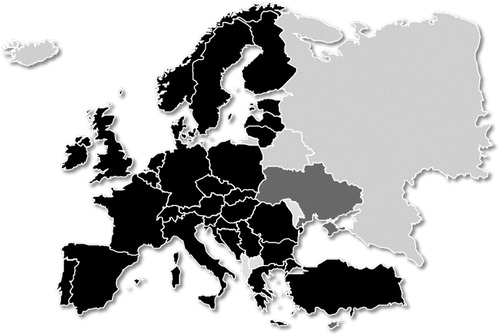The “bio-based economy” represents an increasing area of development globally and covers a wide range of activities incorporating bio-based materials. “Bio-based” in this context means that the materials and products are made from renewable resources, with the criteria that a renewable resource recovers faster than it is drained, in contrast to many mineral and fossil resources. The processing of the forest biomass into value adding and durable building materials and products, also taking into account the by-product streams; clearly fulfil these criteria today and with pro-active strategies also in the future. In addition to this, compared with aluminium, steel and concrete most such bio-based materials are made with considerable lower energy consumption and their use act as a carbon sink which means that a replacement of materials made from non-renewable resources directly reduces CO2 emissions. The future strategies for the world’s energy and materials supply must consider these facts since some prognoses indicate that the fast growth of the bio-energy sector could result in a higher use than growth of Europe’s forest and agricultural biomass, as suggested by a recent report that stated that European Union supply of biomass will only reach 83 % of required levels by 2020.
In order to co-ordinate activities within the bio-based construction sector, the European COST Association agreed to fund the COST Action FP1303 (“Performance of Bio-based Building Materials”) from October 2013 to the end of October 2017, involving 29 EU countries, as well as Ukraine, Kosovo and New Zealand ().
Major outcomes of FP1303
Through its four years of operation, COST FP1303 has engaged over 260 scientists in meetings, conferences, training schools and Short-Term Scientific Missions. The meetings held focussed on the following themes:
Moisture interactions
Performance and maintenance of bio-based building materials influencing the life cycle and LCA
Performance Testing and Testing Methodologies
LCA of wood modification processes: where are the weaknesses in inventories?
Performance Testing and Testing Methodologies
Hygrothermal performance of buildings and their materials
Design, Application and Aesthetics of bio-based building materials
Building with bio-based materials: Best practice and performance specification
The major outcome from the Action has been the publication of the book “Performance of bio-based building materials”. Published by Woodhead Publications (part of Elsevier), the book covers recent activities in bio-based materials, and incorporated 66 authors from across the COST Action network.
Ensuring evaluations are consistent at different sites is an important matter when it comes to bio-based materials. The use of round robin tests can help overcome personal mis-interpretations. In this Action, an initiative was undertaken aiming on collecting performance data under climatically different exposure conditions using a test table. Therefore, it was required to provide weather data from the respective test sites to allow establishing relationships between climate conditions and the following regularly determined measures: decay, discolouration, development of mould and other staining fungi, corrosion of fasteners, formation of cracks and moisture performance (if moisture recording device was included). A total of 28 research institutions and universities across 15 Action countries participated in this assessment, with data still being collected and reported.
This special edition of Wood Materials Science & Engineering comprises several papers submitted and presented at the final COST Action meeting, held in Zagreb, Croatia on 6–7 September 2017. These papers represent the wide scope of subjects and quality of work covered during the four years of the Action.

